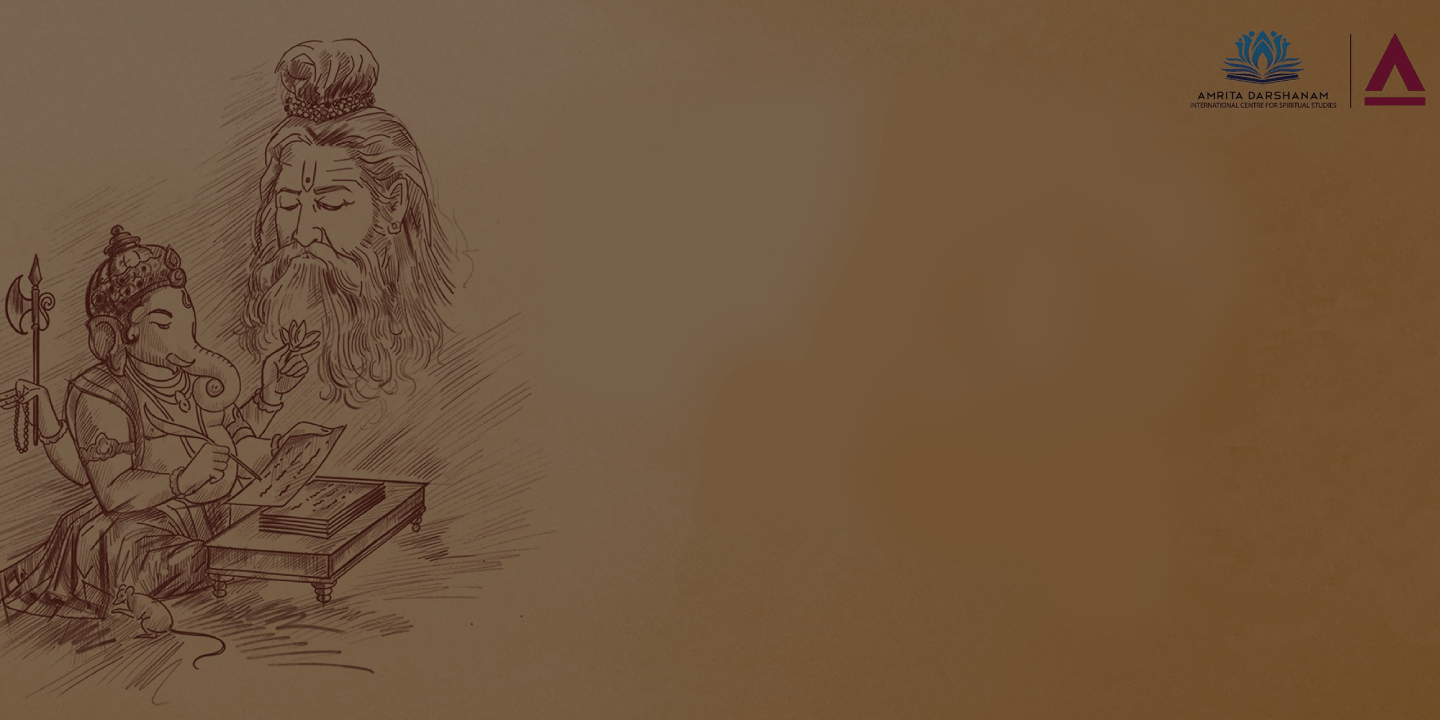
Mahabharata Upanayanam Certificate Program
Mahabharata is the greatest chronicle ever narrated, and most people would have heard something or other about this grand itihasa.
Mahabharata is the greatest chronicle ever narrated, and most people would have heard something or other about this grand itihasa. Through movies, tele-series, novels, short stories, poems, dramas, folk tales, traditions and a thousand other ways, opinions are made and people assume that they know for sure what’s actually inside this book. But are all these hearsays, facts from the real textual Mahabharata? Like a jumbled Rubik’s cube in their hand that they are unable to solve, are people left with a mixed up version of Mahabharata? Do they know how and where to look for the answers? Join Mahabharata Upanayanam Certificate Course to have a deep dive in the past.
30 Hours in 8 Weeks, 5 Hours / Week
INR 6000 (including GST) / $100 for the entire program
Higher Secondary / +2 in any stream, Working knowledge in English
Final deadline: Updated soon
Composed by Mahaṛṣi Kṛṣṇa Dvaipāyana Vyāsa, Mahābhārata is the chronicle of the Kuru dynasty of India. Due to its historical nature, it is classified as an itihāsa.
At the same time, it is considered the fifth Veda owing to its profound philosophical and spiritual lessons, which help us navigate this world happily.
Through movies, tele-series, novels, short stories, poems, dramas, folk tales, traditions and a thousand other ways, opinions are made and we assume that we know for sure what’s actually inside this book. But are all these hearsay, facts from the real textual Mahābhārata? Are we left with a mixed-up version of Mahābhārata? Do we know how and where to look for the answers? At Amrita AHEAD we have started a Mahabharata History Program so you can learn more about Indian culture
Mahabharata Upanayanam Certificate Course will help solve this conundrum. This Program is an introduction to the multidimensionality of this itihāsa, with its textual traditions, complex characters, profound stories, insightful conversations, etc. Each module in this program is intended to grant a deeper vision and understanding of the Mahābhārata and convey how and where to find answers.

2. Mitigate and courageously face life, at home and at work.
3. Manage the internal and external world by practising Dharma in Karma – Taking responsibility for our words and deeds.
4. Understand the textual tradition of Mahābhārata and differentiate between misconceived notions, regional tales and stories within the text.
5. To live happily, by practising Mahābhārata wisdom in daily life.
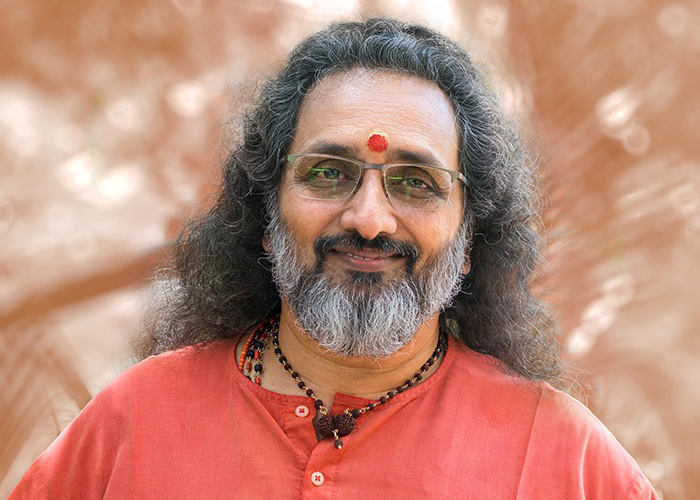
Swami Amritaswarupananda Puri
Swami Amritaswarupananda Puri is the Vice-Chairman of the Mata Amritanandamayi Math and President of Amrita Vishwa Vidyapeetham (Amrita University). He is the head disciple of renowned humanitarian and spiritual leader Amma, Satguru Sri Mata Amritanandamayi Devi. Swami has been living in Amritapuri Ashram since its inception in the late 1970s. He holds a Master’s in Philosophy and is a renowned author.
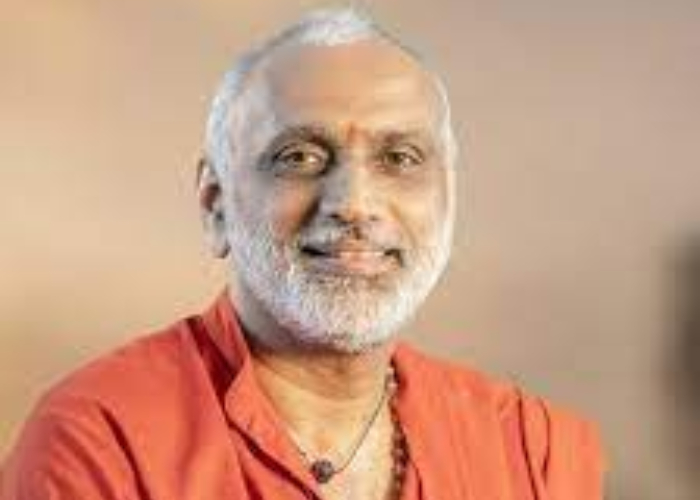
Swami Dhyanamritananda Puri
Swami Dhyanamritananda Puri is a disciple of Amma, Satguru Sri Mata Amritanandamayi Devi. He has been with Amma for the past three decades. He has addressed students on various aspects of life management for many years. His simple approach is thought-provoking and conveys the great wisdom of the scriptures in joyful and engaging ways. He also takes care of Ashram’s IT department and photography and plays Kaimani for Amma’s Bhajans. Swami has been focusing on Bhagavad Gita for several years now. He has designed an exclusive Bhagavad Gita camp, ‘Gitamritam’, which has been running successfully for over nine years.

Swami Shubamritananda Puri
Swami Shubamritananda Puri has been a permanent resident of Mata Amritanandamayi Math since 1989. He did his graduation in Science from Mumbai University. He takes care of the Ashram activities in Europe, Africa, Russia and Israel. He is one of Amma’s translators, a gifted speaker, a singer and a songwriter as well. He also served as the Editor of the Ashram spiritual magazine, Matruvani, in the English language, till 1998. He mentors AYUDH, Europe (the youth wing of Mata Amritanandamayi Math), which has blossomed into a very active youth movement in Europe and has won accolades and recognition for its work.

Sri Aravindan Neelakandan
Renowned writer, Co-Author of ‘Breaking India’- bestseller book Aravindan Neelakandan is a researcher and author, with deep focus on Indian Culture & History, Science and Philosophy of Science. His is the co-author of the best-selling work, ‘Breaking India – Western Interventions in Dravidian and Dalit Faultlines’. He has also authored other books in Tamil that explore culture, history, science and technology. Currently he is the contributing editor of Swarajya Magazine.
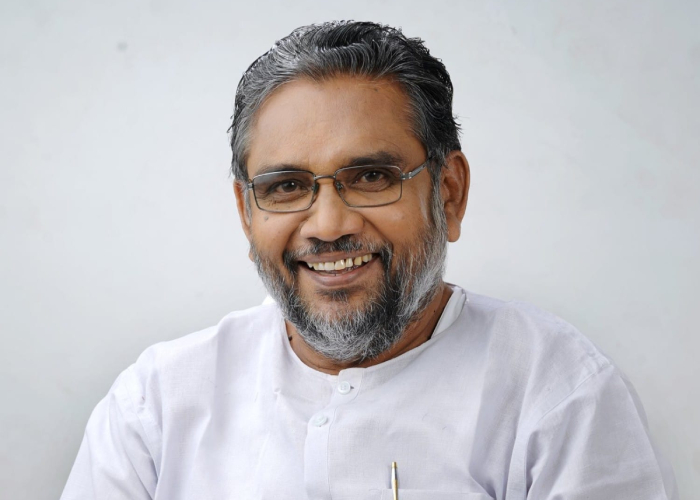
Prof. K S Radhakrishnan, Ph.D
K S Radhakrishnan is a noted writer, orator, academician and thinker. He has served as Kerala PSC chairman, Vice Chancellor of Kalady Sree Sankaracharya University and Reader at Ernakulam Maharajas College. He has more than 30 years of teaching experience at postgraduate level. His specialization is in Advaita Philosophy and the Philosophy of Science. He has authored several books on Mahabharata.
Principal, Amrita School of Spiritual and Cultural Studies
Assistant Professor, Amrita School of Spiritual and Cultural Studies
Assistant Professor, Amrita School of Spiritual and Cultural Studies
Faculty Associate, Amrita School of Spiritual and Cultural Studies
Faculty Associate ,Amrita School of Spiritual and Cultural Studies
Faculty Associate, Amrita School of Spiritual and Cultural Studies
Faculty Associate, Amrita School of Spiritual and Cultural Studies
Faculty Associate, Amrita School of Spiritual and Cultural Studies
Faculty Associate, Amrita School of Spiritual and Cultural Studies
The National Assessment and Accreditation Council (NAAC), Government of India accredited our University with the topmost ‘A++’ grade. The Schools under the aegis of Amrita University have over 108 programmes in disciplines as diverse as Biotechnology, Engineering, Management, Medicine, Dentistry, Ayurveda, Pharmacy, Nanotechnology, Communication, Arts & Science and Education, providing our students with outstanding training in our several campuses across multiple states. Needless to add, this multi-disciplinary character of our University facilitates a laudable synergy within our midst greatly enabling us all to derive maximum benefit from the expertise of each other. The Amrita AHEAD programs are WES-accredited in the United States and Canada.
Amrita ranked 7th Best University in India- NIRF, Govt. of India




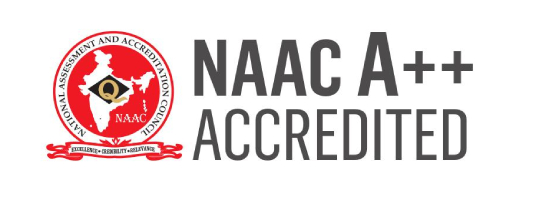
a) All course materials, including video, reading materials and recording of live sessions will be available until successful completion of course or stipulated time limits, whichever comes first.
a) Yes
a) Recordings will be provided.
a) No. Course contents will be available in the enrolled term
a) Yes. A formal certificate from Amrita Vishwa Vidyapeetham will be awarded upon successful completion.
It is a simple and easy process. You need to fill out our application form to apply.
You can contact us via Email, Call or WhatsApp. You can also chat with us through the chat window present on our website.
English
No, there is no admission fee when you apply. It is free.
Yes, International Students are welcome. Students with Foreign Education can also apply. Certificate is offered upon successful completion of the course.
Yes, the course will be offered again
We follow UGC Regulations for a Refund :
* A processing fee of 2000 will be deducted

I think that Mahabharata provides very deep knowledge which is applicable to daily life. Going inside Mahabharata is in reality going inside within yourself. The Course has been quite short for me but it is very deep, although sometimes in daily routine you cannot spend much time with the modules. For many years I had this in mind, to know more about Mahabharata, as I knew very little about it. I thank you all for making this course possible, and of course to Mata Amritanandamayi Devi because without her Grace I am sure it would have never been possible.

The Mahabharata Upanayanam Course helped me to understand it’s importance in our daily life. Again I understood that it has importance in different spheres of life like personal, social, cultural, financial, geographical, political and environmental spheres. This course helped me to understand the core of Indian Philosophy by having better clarity on puruṣārthas and concentrate on our dharma(duty) by living a life of Nishkama karma. All stories in Mahabharata are real incidents which happens in our life one way or other. It has importance in all ages since the core of humanity is same, as it is, in it’s physical, mental and spiritual forms. All values and advices are eternal for all yugas. Amma within us as the embodiment of love help us to understand life and move forward in life and live life as a complete human being by understanding that it’s [it is] the world which reflects from within. It is Amma, who guided me to learn this course to understand and love life by understanding it’s importance to attain realization.

Amrita University’s virtual course on the Mahabharata was an inspiring and enlightening journey into the deep cultural and spiritual ideals that this grand Itihasa has to offer the world. The in-depth and thought-provoking course material, which included written analyses and online discussions, deepened my love for, and understanding of, the Mahabharata by bringing to life the multifaceted lessons and values that are depicted through the various characters’ journeys and struggles. I eagerly look forward to the next class.

The Mahabharata Upanayanam is a great course that brings out the breathtaking beauty, pearls of wisdom, values, and principles from the greatest epic mankind has ever seen. The academic setting means that the course lays down facts, opens itself up for questions, and separates itself from perspectives and folklore, very much to the delight of a theology student as to a layperson. It looks at the various characters, their situations and tries to highlight the complexities of the decision-making process, the consensus and compromises they make, and the resulting fortunes and misfortunes. No matter your level of knowledge of the epic, this course will definitely teach you the most important values including the Purusharthas with special emphasis on action based on Dharma. Several renowned experts as teachers and a very mature and well-researched presentation of the lectures meant that it was a real bliss to attend. I attended all the lectures and have benefitted thoroughly from the same. I highly recommend this course and it will definitely empower you with the right wisdom and attitude to move ahead courageously through various situations in life.

The Mahabharata is a very fascinating and versatile scripture whose relevance is growing over time. The Mahabharata Upanayanam course does a great job of gathering up the lesser known but also the interesting and influential aspects of Mahabharata. I joined the course given my initial interest of the great Ithihasa. What the program has helped me achieve is understand the scriptures in greater detail and it has widened my view of the world itself. One aspect that I liked was that the course is self-paced and the continuous dialogue that the group had during the course of the program. Even while being the youngest student in the course, I felt completely at ease and thoroughly enjoyed it.
+91 70251 51521